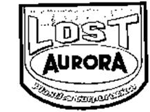
All About Aurora Postage Stamp Trains
Company Profile: Aurora Plastics Corp.
 Founded in 1950 by engineer Joseph Giammarino
and business manager Abe Shikes, Aurora Plastics Corporation (not to be confused with Aurora Plastics)
got its start in Brooklyn as a contract manufacturer of injection molded plastics, later relocating to Long Island. After hiring salesman John Cuomo in 1952,
Aurora began producing their first
model kits of 1:48 scale aircraft. The kits were easier to assemble and priced lower than their competition, and thus sold very well to youngsters. By this means,
Aurora effectively began transforming the plastic hobby kit industry.
Founded in 1950 by engineer Joseph Giammarino
and business manager Abe Shikes, Aurora Plastics Corporation (not to be confused with Aurora Plastics)
got its start in Brooklyn as a contract manufacturer of injection molded plastics, later relocating to Long Island. After hiring salesman John Cuomo in 1952,
Aurora began producing their first
model kits of 1:48 scale aircraft. The kits were easier to assemble and priced lower than their competition, and thus sold very well to youngsters. By this means,
Aurora effectively began transforming the plastic hobby kit industry.
 Through the 1960s Aurora aggressively expanded their model line
by adding ships, automobiles and figure kits,
the latter among their most popular products. Aurora also began importing slot cars from Playcraft
in the UK, and not long afterward their own new AFX Model Motoring line dominated the
market, eventually selling roughly 25 million cars; even Faller,
a slot car competitor in Germany, bought cars from them.
Through the 1960s Aurora aggressively expanded their model line
by adding ships, automobiles and figure kits,
the latter among their most popular products. Aurora also began importing slot cars from Playcraft
in the UK, and not long afterward their own new AFX Model Motoring line dominated the
market, eventually selling roughly 25 million cars; even Faller,
a slot car competitor in Germany, bought cars from them.
At its height, Aurora had three of its own international distributors: Aurora Plastics of Canada Ltd., Aurora Plastics Co. UK Ltd., and Aurora Plastics Netherland N.V. Aurora claimed to be the world's largest manufacturer of hobby products, and there's little reason to doubt it. In 1967 they created the Postage Stamp Trains line in response to the growing popularity of N Scale trains by importing North American items from Trix.
With 1969 came the beginning of the end for Aurora. The slot car craze had died down, and they suffered a stinging defeat attempting to compete with Lesney Products' popular Matchbox series with their ill-conceived Cigarbox line, which was utterly crushed by Mattel's Hot Wheels, released that same year. The founders retired, and Charles Diker, a former Revlon Vice-President, assumed ownership.
![]() Diker continued to manage the company as President after
Nabisco bought it in 1971 (which unexpectedly gave rise to
protests) and renamed it
Aurora Products Corporation. After failing to turn a profit for four
years straight, Diker was replaced by Boyd W. Brown, former president of Mattel Canada, but by then Aurora was mortally crippled.
Diker continued to manage the company as President after
Nabisco bought it in 1971 (which unexpectedly gave rise to
protests) and renamed it
Aurora Products Corporation. After failing to turn a profit for four
years straight, Diker was replaced by Boyd W. Brown, former president of Mattel Canada, but by then Aurora was mortally crippled.
Nabisco finally pulled the plug in 1977, sold all plastic kit tooling to Aurora's one-time rival Monogram (who eventually merged with Revell, Aurora's other main rival), and sold the slot car division to Dunbee-Combex-Marx, a British toy conglomerate that had just bought the venerable Louis Marx & Company (along with Tri-ang Railways, predecessor of Hornby Railways and future owners of Trix) from the Quaker Oats Company. After Marx collapsed in 1980, AFX became the property of Aurora Canada, a very enigmatic entity that may have arisen from the remains of Aurora's old Canadian distributor and/or may have had ties to American Tortoise, until they went bankrupt four years later, when Tomy bought the line.
 Since then there have been a couple of failed shots at resurrecting
the company. One of them was called Lost Aurora and died
around 1999, while the remnants of a more recent attempt are still online. One wonders how the brazen pledge
made by Joe Giammarino's descendantsóWe will bring back what was lost and at the same time add to that LEGACY... so when the BOOK finally closes, this Legacy will remain
alive and burning evermore, in the hearts of people across the GLOBE!ócould ever be fulfilled realistically, let alone profitably. At any rate, after
a bit more digging, I've come to the conclusion that the
people involved in the most recent business dealings are less than trustworthy, and I'll leave it at that.
Since then there have been a couple of failed shots at resurrecting
the company. One of them was called Lost Aurora and died
around 1999, while the remnants of a more recent attempt are still online. One wonders how the brazen pledge
made by Joe Giammarino's descendantsóWe will bring back what was lost and at the same time add to that LEGACY... so when the BOOK finally closes, this Legacy will remain
alive and burning evermore, in the hearts of people across the GLOBE!ócould ever be fulfilled realistically, let alone profitably. At any rate, after
a bit more digging, I've come to the conclusion that the
people involved in the most recent business dealings are less than trustworthy, and I'll leave it at that.
See Also...
- Company Profile: Trix
- Company Profile: Roco
- Company Profile: Faller
- Company Profile: American Tortoise